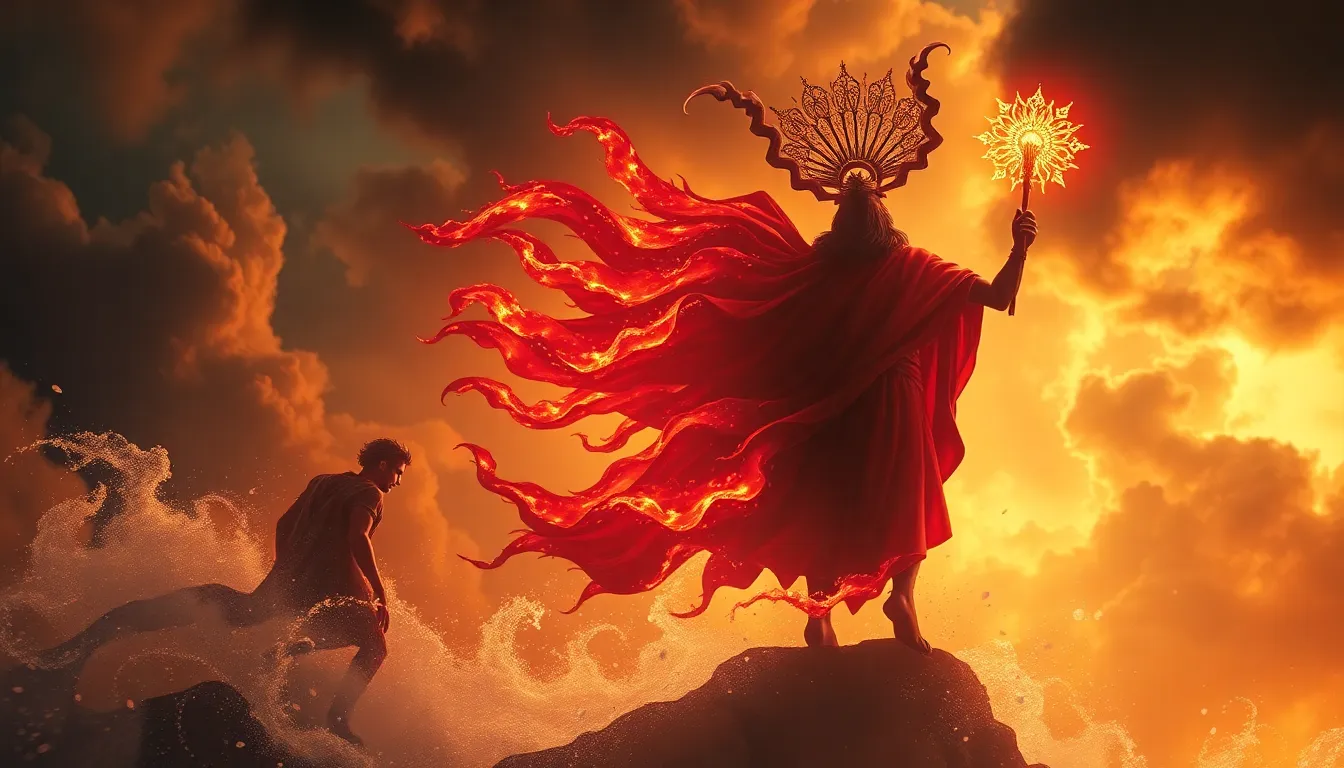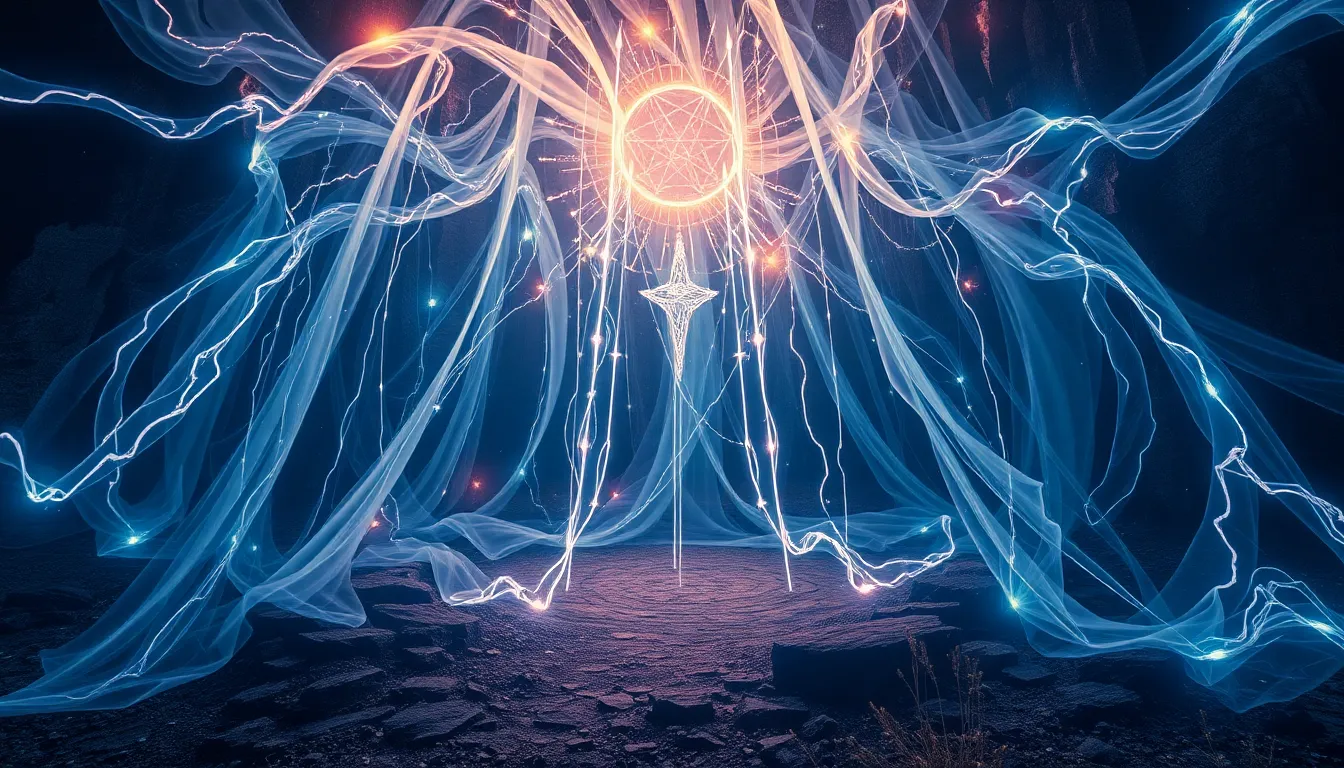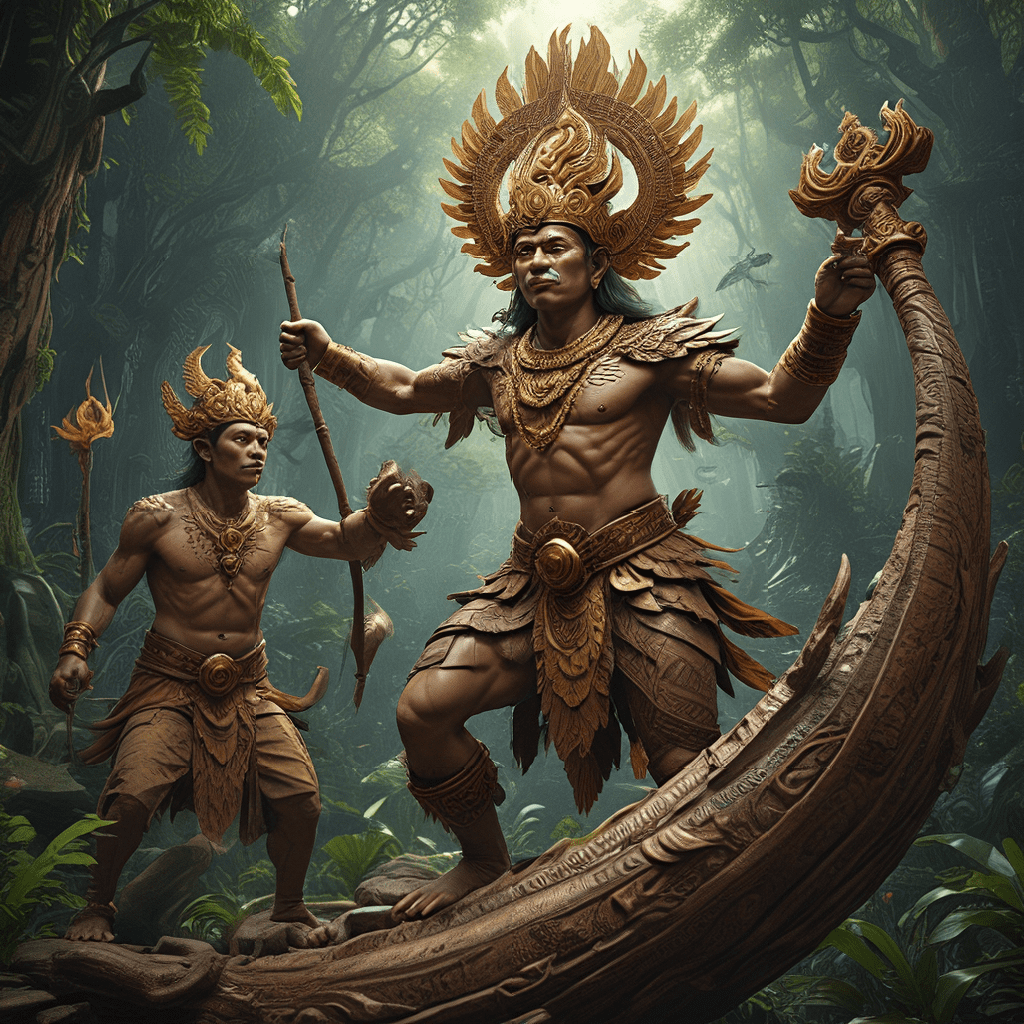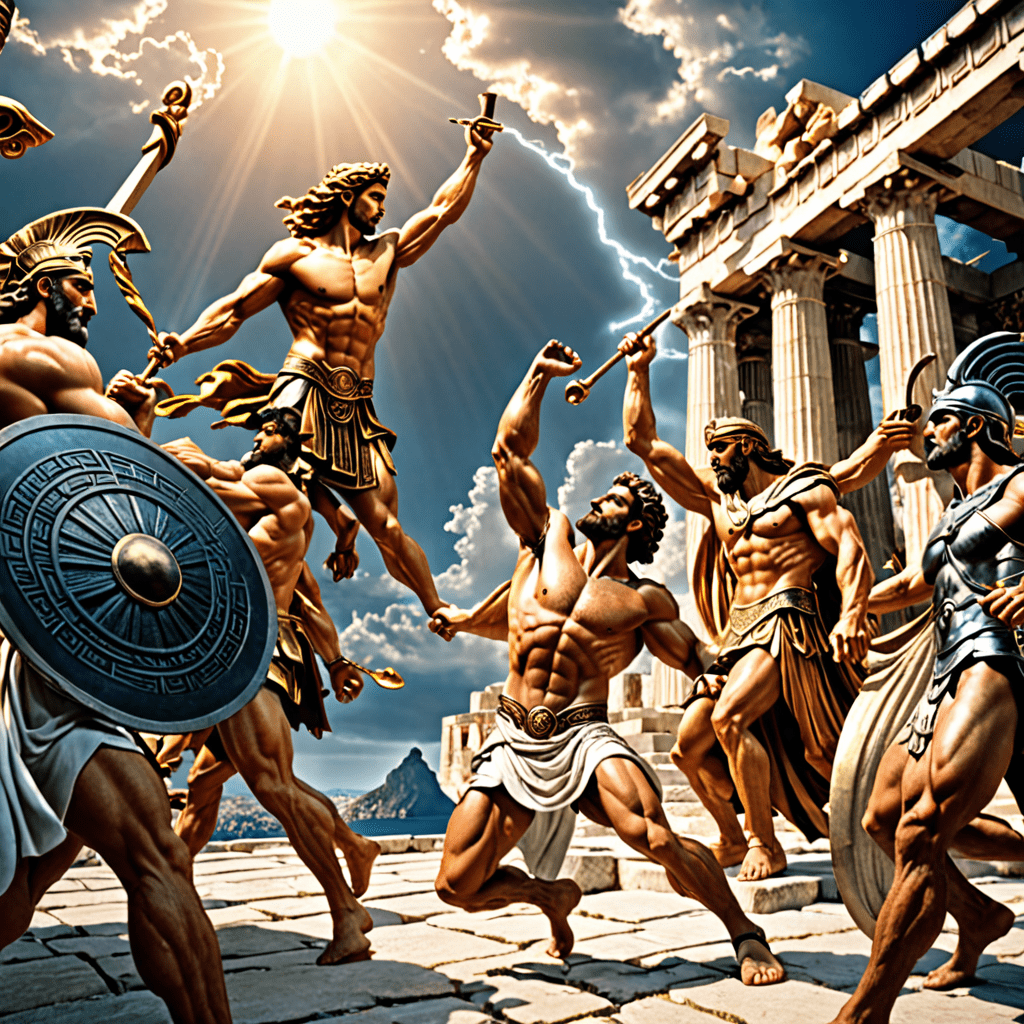Cultural Hero Myths: The Stories That Inspire Resilience
I. Introduction
Cultural hero myths are narratives that celebrate individuals who embody extraordinary qualities, inspiring communities and individuals alike. These myths serve as powerful tools that convey values and ideals, often reflecting the aspirations of a society. They are fundamental in shaping resilience, providing models of strength and perseverance in the face of adversity.
This article aims to explore the significance of cultural hero myths, their characteristics, historical examples, and their impact on individual and collective resilience. By understanding these narratives, we can appreciate their role in human culture and their potential to inspire positive change.
II. The Role of Myths in Human Culture
Mythology is a universal aspect of human culture, present in varying forms across all societies. Myths provide a framework through which communities can understand their world, articulate their values, and pass down knowledge through generations.
A. Overview of Mythology Across Different Cultures
From the ancient epics of Mesopotamia to the folklore of indigenous tribes, mythology encapsulates the human experience. Common themes include creation, destruction, love, and the struggle against evil. Each culture has its unique set of heroes and narratives that speak to their specific historical and social contexts.
B. Psychological Significance of Myths in Society
Myths fulfill essential psychological functions, including:
- Providing meaning and purpose
- Offering explanations for human experiences
- Encouraging social cohesion and identity
Through these functions, myths help individuals navigate life’s challenges, fostering a sense of belonging and understanding.
C. Myths as Tools for Teaching Values and Morals
Hero myths serve as moral compasses, illustrating virtues such as courage, integrity, and sacrifice. These narratives often highlight the consequences of actions, teaching lessons that resonate across generations.
III. Characteristics of Cultural Hero Myths
Hero myths share several defining characteristics that contribute to their enduring appeal.
A. Common Traits of Heroic Figures
Heroic figures often exhibit:
- Exceptional abilities or qualities
- A strong moral compass
- A willingness to face danger and adversity
B. The Journey of the Hero: Stages and Archetypes
The concept of the hero’s journey, defined by Joseph Campbell, outlines stages such as:
- Call to Adventure
- Crossing the Threshold
- Facing Trials and Enemies
- Return with the Elixir
C. The Role of Adversity in Heroic Narratives
Adversity often serves as a catalyst for growth in hero myths. Heroes confront challenges that test their limits, ultimately emerging stronger and more resilient.
IV. Historical Examples of Cultural Hero Myths
Throughout history, various figures have emerged as cultural heroes, each embodying the ideals of their respective societies.
A. Ancient Greek Heroes: Hercules and Odysseus
Hercules, known for his strength and bravery, undertook twelve labors, symbolizing the struggle against overwhelming odds. Odysseus, on the other hand, represents intelligence and cunning, navigating treacherous waters to return home, embodying perseverance and resourcefulness.
B. Indigenous Heroes: Stories from Native American Mythology
Many Native American cultures feature heroes who connect deeply with nature and community, such as the trickster figure Coyote, who teaches important life lessons through his misadventures.
C. Modern Myths: Figures like Nelson Mandela and Malala Yousafzai
In contemporary society, figures such as Nelson Mandela and Malala Yousafzai have emerged as modern heroes, advocating for justice and education despite facing significant personal risks. Their stories continue to inspire resilience and activism worldwide.
V. The Impact of Hero Myths on Individual Resilience
Cultural hero myths play a crucial role in fostering resilience at the individual level.
A. How Hero Myths Foster Personal Growth
By identifying with heroic figures, individuals can draw strength and motivation from their stories. These narratives encourage people to face challenges with courage and determination.
B. Psychological Mechanisms Behind Resilience Inspired by Myths
Hero myths can instill a sense of agency and empowerment, reinforcing the belief that individuals can overcome their struggles. This psychological boost is vital for personal development.
C. Case Studies of Individuals Inspired by Hero Myths
Many individuals credit their resilience to the influence of heroes in literature, history, and media. For example, survivors of personal trauma often cite figures like Anne Frank or Maya Angelou as sources of inspiration in their healing journeys.
VI. Collective Resilience and Community Strength
Hero myths also contribute to resilience on a collective level, fostering community identity and strength.
A. The Role of Hero Myths in Building Community Identity
Shared narratives of cultural heroes can unite communities, creating a sense of belonging and purpose. They often serve as rallying points during times of crisis.
B. Myths as Catalysts for Social Change and Collective Action
Many hero myths inspire collective movements for change, motivating people to stand up against injustice and fight for their rights.
C. Examples of Community Resilience Inspired by Cultural Heroes
The Civil Rights Movement in the United States, inspired by figures like Martin Luther King Jr., exemplifies how hero myths can galvanize communities to pursue justice and equality.
VII. The Evolution of Hero Myths in Contemporary Society
As society evolves, so too do its hero myths, influenced by media, technology, and globalization.
A. The Influence of Media and Technology on Hero Narratives
Modern media, particularly film and social media, shape the way hero stories are told and consumed, often amplifying their reach and impact.
B. New Heroes: Modern Figures in the Age of Social Media
Figures such as Greta Thunberg and other youth activists have emerged as contemporary heroes, utilizing social media to spread their messages and mobilize action for climate justice.
C. How Globalization is Transforming Traditional Hero Myths
Globalization has led to a blending of narratives, allowing different cultures to share and reinterpret hero myths, creating a richer, more diverse tapestry of heroism.
VIII. Critiques and Limitations of Hero Myths
While hero myths play an essential role, they also face critiques regarding their interpretation and impact.
A. Potential for Misinterpretation and Misuse
Hero myths can be misappropriated, leading to distorted narratives that may promote harmful ideologies instead of positive values.
B. The Danger of Idealizing Heroes
Idealizing heroes can create unrealistic expectations, leading to disappointment when real individuals fail to meet those standards.
C. Inclusivity in Hero Narratives: Voices of Marginalized Groups
It is crucial to include diverse perspectives in hero narratives, ensuring that marginalized voices are represented and celebrated within cultural myths.
IX. Creating Personal Hero Myths
Individuals can craft their own resilience narratives, drawing inspiration from cultural hero myths.
A. Encouraging Individuals to Craft Their Own Resilience Narratives
By reflecting on personal challenges and triumphs, individuals can create their own hero myths that highlight their resilience and growth.
B. The Therapeutic Value of Storytelling and Myth-Making
Storytelling serves as a therapeutic tool, allowing individuals to process their experiences and find meaning in their struggles.
C. Practices for Developing Personal Hero Myths
Some practices include journaling, creative writing, and engaging in community storytelling initiatives that encourage the sharing of personal narratives.
X. Conclusion
Cultural hero myths play a vital role in shaping resilience, offering models of strength and perseverance. They connect individuals to their communities and inspire collective action for positive change. As we navigate an ever-evolving society, the relevance of hero myths remains significant, reminding us of the power of stories to inspire and unify. By embracing and sharing these narratives, we not only honor our past but also pave the way for future generations to craft



